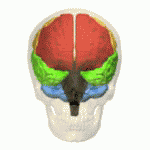
Autism researchers have uncovered a clue to the mystery of why autism affects four times as many boys as girls: a genetic glitch that only affects boys. Continue reading
Author: Julie
Cholesterol drug shows benefit in animal study of Alzheimer’s disease

April 5, 2012 – Improvement shown in blood vessel function following drug treatment. A cholesterol drug commonly prescribed to reduce cardiovascular disease risk restores blood vessel function in a mouse model of Alzheimer’s disease, according to a study in the April 4 issue of The Journal of Neuroscience. Continue reading
Why some pain drugs become less effective over time
April 5, 2012 – Researchers at the University of Montreal’s Sainte-Justine Hospital have identified how neural cells are able to build up resistance to opioid pain drugs within hours. “A better understanding of these mechanisms will enable us to design drugs that avoid body resistance to these drugs and produce longer therapeutic responses, including longer-acting opioid analgesics”, lead author Dr. Graciela Pineyro said.
Coffee and other stimulant drugs may cause high achievers to slack off: UBC study
March 28th, 2012 – While stimulants may improve unengaged workers’ performance, a new University of British Columbia study suggests that for others, caffeine and amphetamines can have the opposite effect, causing workers with higher motivation levels to slack off.
Study suggests new way to treat chronic pain
Brain Awareness Week – March 12 – 16 2012
 It is Brain Awareness Week, a global campaign to increase public awareness of the progress and benefits of brain research. To find out about activities occuring in Canada, visit the Dana foundation’s calendar of events. Events occuring around the world can also be found at www.dana.org/brainweek. So wherever you are, celebrate your brain this week!
It is Brain Awareness Week, a global campaign to increase public awareness of the progress and benefits of brain research. To find out about activities occuring in Canada, visit the Dana foundation’s calendar of events. Events occuring around the world can also be found at www.dana.org/brainweek. So wherever you are, celebrate your brain this week!
McGill researchers crack degeneration process that leads to Alzheimer’s

March 8, 2012 – New study points to possible new therapeutic approaches in treatment of AD. A research group led by Dr. A. Claudio Cuello of McGill University’s Faculty of Medicine, Dept. of Pharmacology and Therapeutics, has uncovered a critical process in understanding the degeneration of brain cells sensitive to Alzheimer’s disease (AD). The study, published in the February issue of the Journal of Neuroscience, suggests that this discovery could help develop alternative AD therapies.
Younger children in the classroom likely over-diagnosed with ADHD: UBC research
March 5, 2012 – The youngest children in the classroom are significantly more likely to be diagnosed with attention deficit hyperactivity disorder – and given medication – than their peers in the same grade, according to new research by the University of British Columbia.
Open your eyes and smell the roses

February 29 2012 – Activating the visual cortex improves our sense of smell. A new study reveals for the first time that activating the brain’s visual cortex with a small amount of electrical stimulation actually improves our sense of smell. The finding published in the Journal of Neuroscience by researchers at the Montreal Neurological Institute and Hospital – The Neuro, McGill University and the Monell Chemical Senses Center, Philadelphia, revises our understanding of the complex biology of the senses in the brain.
Doctors find new way to predict recurrent stroke

Feb 24, 2012 – New research from the University of Calgary’s Hotchkiss Brain Institute (HBI) shows that using a CT (computerised tomography) scan, doctors can predict if patients who have had a transient ischemic attack (TIA) or minor stroke, with neurological symptoms such as weakness or speech issues, are at risk for another more severe stroke. Continue reading







